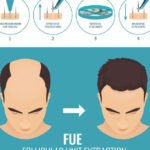Alternatives to Hair Transplant Surgery: Top Non-Surgical Options
For many individuals facing hair loss, the idea of undergoing surgery can be daunting, not to mention the significant costs involved. Fortunately, there are numerous alternatives to hair transplant surgery that can help combat hair thinning and loss without the need for invasive procedures. These non-surgical options range from medications and therapies to lifestyle and dietary changes, each offering a different approach to promoting hair growth and health. In this comprehensive guide, we will explore the top non-surgical options for those seeking alternatives to hair transplant surgery, providing insights into how they work, their effectiveness, and who might benefit from them.
- Medications for Hair Loss
- Exploring Low-Level Laser Therapy (LLLT)
- The Benefits of Platelet-Rich Plasma (PRP) Therapy
- Understanding Scalp Micropigmentation
- Choosing Hair Loss Shampoos and Conditioners
- Natural Remedies and Supplements for Hair Growth
- The Role of Essential Oils in Hair Regrowth
- How Scalp Massage Contributes to Hair Health
- Using Hair Fibers and Concealers for Instant Coverage
- Alternative Hair Solutions: Systems and Wigs
- The Potential of Amino Acid Treatments
- Stem Cell Therapy: A Frontier in Hair Regrowth
- Microneedling for Scalp and Hair Health
- Nutritional Adjustments for Enhancing Hair Growth
- Stress Management Techniques for Hair Preservation
- Avoiding Harsh Hair Treatments and Chemicals
- Hair Care and Styling Techniques to Minimize Damage
- Switching to Gentle, Natural Hair Care Products
Medications for Hair Loss
One of the most accessible alternatives to hair transplant surgery is the use of medications designed to prevent hair loss and, in some cases, stimulate new growth. Finasteride and Minoxidil are two of the most well-known and widely used medications for this purpose. Finasteride, a prescription pill taken once daily, works by inhibiting the production of dihydrotestosterone (DHT), a hormone that contributes to male pattern baldness. Minoxidil, available as a topical solution or foam, can be used by both men and women and functions by stimulating hair follicles to grow. While these medications can be effective for many individuals, they require ongoing use to maintain results and can come with side effects that should be discussed with a healthcare provider.
Exploring Low-Level Laser Therapy (LLLT)
Low-Level Laser Therapy (LLLT) is a non-invasive treatment that uses laser light to stimulate cell growth and improve circulation in the scalp, which can promote hair growth and thickness. LLLT devices, including laser combs, helmets, and caps, are designed for home use, making this an accessible option for those seeking alternatives to hair transplant surgery. Studies have shown that regular use of LLLT can lead to noticeable improvements in hair density and health, although results can vary from person to person. It's important to note that LLLT may not be effective for everyone, particularly those with advanced hair loss.
The Benefits of Platelet-Rich Plasma (PRP) Therapy
Platelet-Rich Plasma (PRP) Therapy is another promising option for individuals looking for alternatives to hair transplant surgery. This treatment involves drawing a small amount of the patient's blood, processing it to concentrate the platelets, and then injecting the platelet-rich plasma into the scalp. The growth factors in the plasma can stimulate hair follicle activity and promote new hair growth. PRP Therapy requires multiple sessions to achieve the best results and may be combined with other treatments for enhanced effectiveness. While PRP Therapy has shown positive outcomes for many patients, it is relatively expensive and requires a commitment to ongoing treatment sessions.
Understanding Scalp Micropigmentation
Scalp Micropigmentation (SMP) is a cosmetic procedure that involves tattooing tiny dots on the scalp to mimic the appearance of short hair follicles. For those seeking alternatives to hair transplant surgery, SMP can provide a solution to hair thinning or balding by creating the illusion of a fuller head of hair. This technique is particularly effective for individuals with closely shaved heads or those looking to conceal specific areas of hair loss. SMP requires several sessions to achieve a natural-looking result and can last for several years before touch-ups are needed. While SMP does not promote hair growth, it can significantly improve the appearance of hair density and coverage.
Choosing Hair Loss Shampoos and Conditioners
While not as potent as some other alternatives to hair transplant surgery, specialized hair loss shampoos and conditioners can play a role in maintaining scalp health and minimizing hair loss. These products often contain ingredients like ketoconazole, biotin, and caffeine, which can help to strengthen hair, reduce breakage, and in some cases, stimulate the scalp to promote growth. It's important to manage expectations, as shampoos and conditioners alone are unlikely to reverse significant hair loss but can be part of a broader hair care regimen aimed at preserving existing hair and supporting new growth.
Natural Remedies and Supplements for Hair Growth
Many individuals seeking alternatives to hair transplant surgery turn to natural remedies and supplements to support hair health. Ingredients like saw palmetto, biotin, pumpkin seed oil, and omega-3 and omega-6 fatty acids have been linked to improved hair growth and health. These natural supplements can work by reducing DHT levels, providing essential nutrients to the hair follicles, and reducing inflammation in the scalp. While scientific evidence supporting the effectiveness of some natural remedies is limited, many people have reported positive results. As with any supplement, it's advisable to consult with a healthcare provider before starting a new regimen.
The Role of Essential Oils in Hair Regrowth
Essential oils such as peppermint oil, rosemary oil, and lavender oil have been touted for their potential to stimulate hair growth and improve scalp health. These oils can be massaged into the scalp either alone or diluted in a carrier oil, providing a natural alternative to hair transplant surgery for those looking to enhance their hair care routine. Research suggests that certain essential oils can increase circulation to the scalp and stimulate hair follicles, potentially leading to increased hair growth. However, essential oils should be used with caution, as they can cause irritation or allergic reactions in some individuals.
How Scalp Massage Contributes to Hair Health
Scalp massage is a simple yet effective technique that can be incorporated into daily hair care routines as an alternative to hair transplant surgery. Massaging the scalp can help to increase blood flow and nutrient delivery to hair follicles, potentially promoting hair growth and thickness. Scalp massage can be performed with or without the use of oils and can also provide a relaxing and stress-reducing experience. While more research is needed to fully understand the impact of scalp massage on hair growth, it is a low-risk option that can complement other hair loss treatments.
Using Hair Fibers and Concealers for Instant Coverage
For those seeking immediate results, hair fibers and concealers offer a temporary alternative to hair transplant surgery by providing instant coverage of thinning areas. These products are made from colored keratin fibers that adhere to existing hair, creating the appearance of fuller hair. Hair fibers and concealers can be an excellent option for special occasions or daily use, although they need to be applied regularly and can wash out. While not a solution for hair growth, these products can significantly improve the appearance of hair density and coverage.
Alternative Hair Solutions: Systems and Wigs
Hair systems and wigs represent another alternative to hair transplant surgery for those looking to conceal hair loss. Modern hair systems and wigs are designed to look incredibly natural, offering a range of styles, colors, and textures to match the wearer's preferences. These solutions can provide an immediate and dramatic transformation, allowing individuals to regain confidence in their appearance. While hair systems and wigs do not address the underlying causes of hair loss or promote hair growth, they can be an effective way to manage the aesthetic aspects of hair thinning and loss.
The Potential of Amino Acid Treatments
Amino acid treatments are emerging as a promising alternative to hair transplant surgery for those seeking to improve hair health and growth. Amino acids are the building blocks of proteins, including keratin, which is a key component of hair. Treatments that enrich the hair and scalp with amino acids can help to strengthen hair, reduce breakage, and potentially stimulate growth. While research into the effectiveness of amino acid treatments for hair loss is ongoing, early results are encouraging, suggesting that they may offer a beneficial addition to hair care regimens.
Stem Cell Therapy: A Frontier in Hair Regrowth
Stem cell therapy represents a cutting-edge alternative to hair transplant surgery, with the potential to revolutionize the treatment of hair loss. This therapy involves using stem cells to regenerate hair follicles, potentially leading to new hair growth. While still in the early stages of research and development, stem cell therapy has shown promise in preliminary studies. However, it is currently expensive and not widely available, making it an option primarily for those willing to explore the latest advancements in hair loss treatment.
Microneedling for Scalp and Hair Health
Microneedling is a minimally invasive procedure that involves using fine needles to create tiny punctures in the scalp. This process can stimulate the body's natural healing response, increasing collagen production and potentially promoting hair growth. When combined with topical treatments like minoxidil, microneedling has been shown to enhance the effectiveness of hair loss treatments, making it a valuable alternative to hair transplant surgery for those seeking to maximize their results. While microneedling can be performed at home, it is recommended to seek treatment from a professional to ensure safety and effectiveness.
Nutritional Adjustments for Enhancing Hair Growth
Diet plays a crucial role in hair health, and making nutritional adjustments can be an effective alternative to hair transplant surgery for those looking to support hair growth from within. A diet rich in vitamins, minerals, and proteins can provide the nutrients necessary for healthy hair growth. Foods high in vitamins A, C, D, E, zinc, iron, and omega-3 fatty acids are particularly beneficial for hair health. Additionally, staying hydrated and avoiding excessive intake of sugar and processed foods can contribute to overall scalp and hair health. Consulting with a nutritionist can help individuals tailor their diet to support hair growth and health.
Stress Management Techniques for Hair Preservation
Stress is a known contributor to hair loss, making stress management an important alternative to hair transplant surgery for those looking to preserve their hair. Techniques such as meditation, yoga, regular exercise, and adequate sleep can help reduce stress levels and potentially minimize hair loss. Additionally, seeking support from a therapist or counselor can be beneficial for those dealing with significant stress or anxiety. By addressing the root cause of stress-induced hair loss, individuals can improve their overall well-being and support hair health.
Avoiding Harsh Hair Treatments and Chemicals
Exposure to harsh hair treatments and chemicals can contribute to hair damage and loss, making it essential for those seeking alternatives to hair transplant surgery to avoid such practices. Chemical hair dyes, straightening treatments, and excessive heat styling can weaken hair, leading to breakage and thinning. Opting for gentler hair care practices and minimizing the use of harsh chemicals can help preserve hair health and prevent further damage. When coloring or treating hair, choosing products with natural or less harmful ingredients and using heat protectant products can mitigate the risk of damage.
Hair Care and Styling Techniques to Minimize Damage
Adopting hair care and styling techniques that minimize damage is crucial for those exploring alternatives to hair transplant surgery. Gentle handling of the hair, avoiding tight hairstyles that pull on the scalp, and using a wide-tooth comb to detangle wet hair can reduce breakage and stress on the hair follicles. Additionally, limiting the use of heat styling tools and allowing hair to air dry when possible can help maintain hair integrity. By being mindful of how hair is treated and styled, individuals can prevent unnecessary damage and support healthier hair growth.
Switching to Gentle, Natural Hair Care Products
Finally, switching to gentle, natural hair care products can be an effective alternative to hair transplant surgery for those looking to improve their hair health. Many conventional hair care products contain harsh chemicals and sulfates that can strip the hair of its natural oils, leading to dryness and breakage. Natural and organic hair care products, on the other hand, often contain nourishing ingredients that support scalp health and hair growth. By choosing products that are free from harsh chemicals, individuals can protect their hair from damage and promote a healthier, fuller head of hair.
While hair transplant surgery may offer a permanent solution to hair loss, it is not the only option available. The alternatives to hair transplant surgery discussed in this guide provide a range of non-surgical solutions that can help individuals address hair loss and improve hair health. From medications and therapies to lifestyle and dietary changes, there are numerous ways to combat hair thinning and loss without undergoing surgery. By exploring these alternatives, individuals can find the best approach to suit their needs and preferences, potentially achieving significant improvements in hair density, health, and appearance.





Leave a Reply